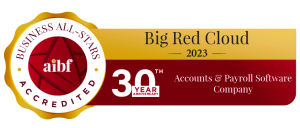Family matters
Family-owned businesses enjoy a number of advantages, which at least partly explains why in most countries around half of all private sector workers are employed by such businesses.
Articles about family-owned businesses often refer to the proverb about the first generation creating the wealth, the second generation spending it, and the third generation having to start all over again.
Different cultures have their own versions of this proverb, which would suggest that there may be some truth in. But there are also many family businesses and business families that continue to thrive well beyond the third generation.
In fact, there is plenty of evidence to suggest that businesses that remain under control of the founding family last longer – and the presence of Walmart, Volkswagen, Ford and Aldi on the lists of the world’s largest companies shows they are not only long-lasting but can also be highly successful.
Blood bonus
Family firms tend to be more focused on the long term which helps foster determination to succeed – something that has come to the fore during the pandemic where family firms have shown resilience and entrepreneurship, quickly adapting business models to find new ways of working and meeting the changing needs of their customers.
Rather than making decisions designed to maximise returns to external shareholders and measuring success purely on a quarterly basis, a family business can think in terms of years and even generations and make decisions that are aligned to that longer term view.
Outside assistance
Family-owned businesses don’t need to be run exclusively by family members. As the business grows there can often be a need to ‘professionalise’ it. This may involve formalising processes, upgrading systems, and bringing in non-family members into senior management roles as well as adding non-executive directors to the board.
These outside perspectives can be useful to the family, particularly if the current management structure is solely made up of family members.
Even the most talented families will have gaps in their collective skills and experience. Non-family members can not only plug these gaps but also remain impartial when disputes arise.
Different strokes
Every family and every family-owned business is unique and will possess different skills and competencies and have different needs. The key to success is having the right people in the right positions to deliver the objectives of the individual or individuals that own the business.
It is also important to ensure that clear roles and responsibilities are defined and that any non-family members being introduced into key roles are provided with the necessary authority to do the job that they have been brought in to do – otherwise they may not stay on board for long.
Bringing in ‘outsiders’ can seem daunting to some families as they may feel scrutinised and challenged about how things have been done in the past. This highlights the importance of ensuring they bring in a good fit, someone who has worked with family businesses in the past and understands that family dynamics can be challenging.




